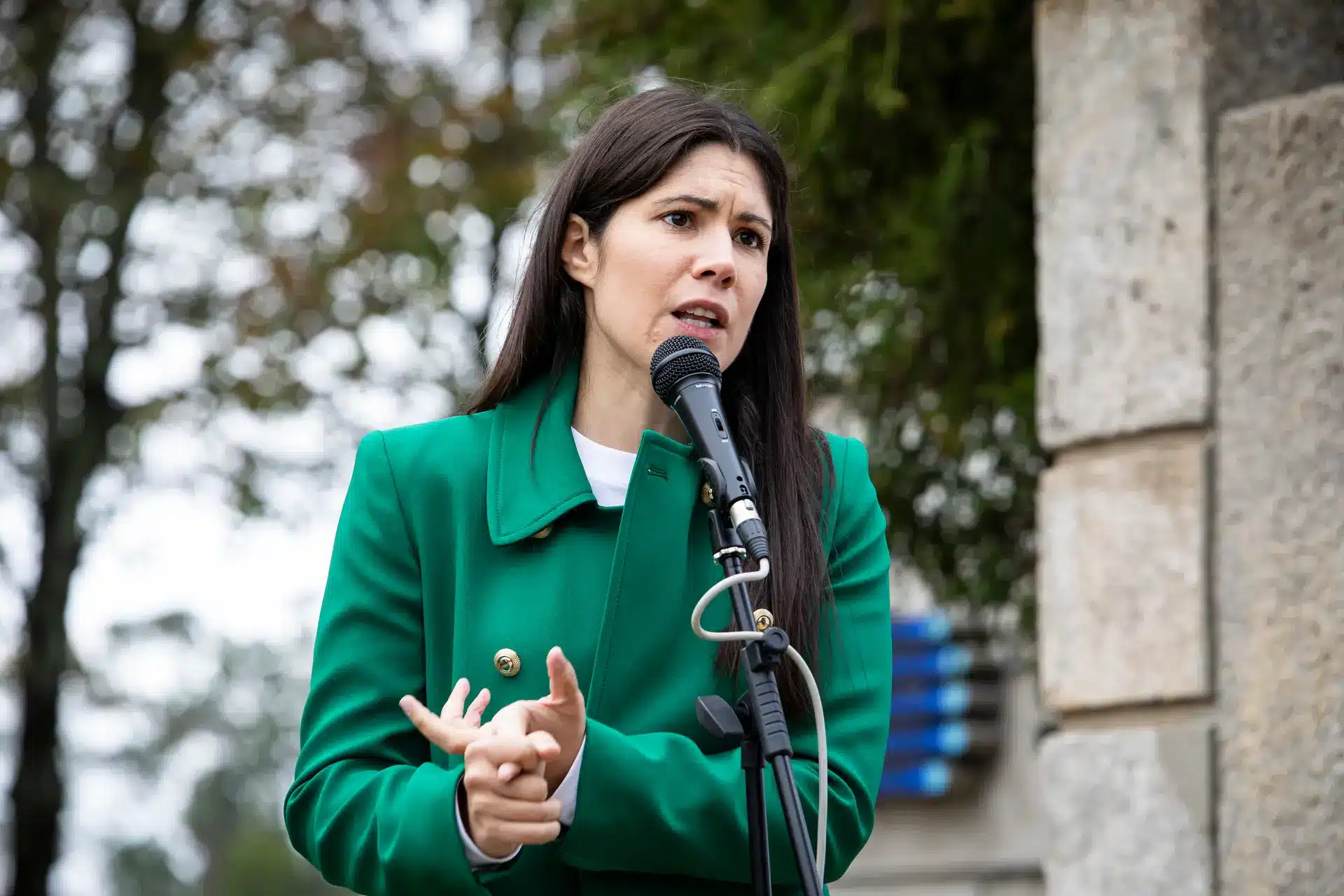Measures include €20 monthly rail pass for (almost) all rail journeys; free travel for under 23s
With so much focus on the state budget (and what PS Socialists will ‘allow’), the government yesterday sought to demonstrate that there IS life beyond the state budget – and they are planning for it.
An extraordinary Council of Ministers in Entroncamento approved 13 measures to improve the mobility of passengers and goods.
Brushing aside the probing questions about the PS’ counter-proposals to the government’s own counter proposals, the prime minister said a few words before giving the floor to his Ministers for Infrastructure and the Environment to explain the “green plan”:
From the €20 rail pass (which has a number of ‘restrictions’) to a €4,000 incentive for scrapping petrol/ diesel cars to buy electric, there are 13 measures due to come into force.
The government also announced the creation of a new structure, the Climate Agency – and the updating of the National Energy and Climate Plan 2030.
“More simplification and speed” and a “reduction in energy costs” are among the main objectives, said Luís Montenegro, who also stressed the government’s intention to be “more efficient and encourage greater control of energy consumption”.
These are “decisions that will have a major impact on the country’s life in the coming years (…) It’s very important to have a state budget, but we need policies, we need paths, and we need to decide”, said Mr Montenegro.
Green mobility for passengers
Minister Miguel Pinto Luz began by presenting the package aimed at passenger transport, which will cost €115 million by 2025 and includes eight measures.
The first is the extension of the Social Pass + to cover 2.5 times more citizens. There will be a 50% discount for citizens with a degree of disability equal to or greater than 60%, and a 25% discount for the long-term unemployed.
The second is the Green Rail Pass, with intercity service (in 2nd class and with reservation), regional, inter-regional, in the urban areas of Coimbra and Lisbon and Porto, when the metropolitan pass doesn’t cover them. It will cost €19 million a year and include compensation to CP (Comboios de Portugal) of €18.9 million a year. The pass comes into force on October 21 and should cover 30 million passengers.
The third measure is the extension of the free pass to all young people up to the age of 23, both students and non-students. It will cost more than €40 million and potentially cover 241 more people.
Minister Miguel Pinto Luz guarantees that the whole process was carried out transparently with CP and that there is capacity to meet the increase in demand.
“We have a guarantee that we can guarantee and provide the services that we are now offering,” he said.
The fourth measure is support of €3 million to municipalities for sustainable urban mobility plans.
The fifth measure is to invest in intelligent mobility – with €2.7 million for the digitalisation and modernisation of public transport and ticket sales.
The sixth measure is the creation of a Public Transport Service Fund, worth €10 million.
The seventh measure provides €20 million for the scrapping of cars that are more than 10 years old, in exchange for support of €4,000 or €5,000 euros (in the case of IPSS) for the purchase of electric vehicles.
The eighth measure is the construction of a line of cycle paths, for which there will be a support line of €3 million.
Green mobility for goods
The Minister for Infrastructure also announced measures approved for freight transport. Miguel Pinto Luz said that a lot of goods are leaving Portugal by truck and that rail must be used much more. Thus, the first measure in the package, he said, has already been implemented: €45 million to support rail operators.
The second measure is a 2.9% cap on the infrastructure utilisation rate this year.
The third measure is an incentive to scrap and buy electric vehicles, also for freight transport. This will cost €3.5 million.
The fourth measure involves the purchase of digital tachographs (devices for recording vehicle driving data and working time) at a cost €2.5 million.
Finally, €2 million in support lines for local authorities to define new urban logistics strategies.
The new Energy and Climate Plan 2030 and the Climate Agency
Maria da Graça Carvalho, Minister for the Environment and Energy, also took the floor to present the new version of the 2030 Energy and Climate Plan to be approved by parliament (with a target of 51% – instead of 47% – for renewable energies, for example), and the creation of the Climate Agency.
This new structure “will manage the environmental fund and the PRR in the area of climate and energy”, as well as other funds from abroad “with accountability and transparency,” she said.
The action of this structure will focus on three axes: energy, climate and decarbonization.
Source: SIC Notícias




















